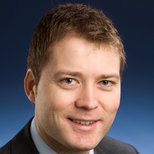Don’t conflate ‘neoliberalism’ with ‘neoclassical economics’
SUGGESTED



Consider ‘A brief history of neoliberalism’ by David Harvey. To get an initial impression of Harvey’s book, look at how Harvey defines neoliberalism (p. 2 & pp. 19-25):
“a theory of political economic practices that proposes human well-being can best be advanced by liberating individual entrepreneurial freedoms skills within an institutional framework characterized by strong private property rights, free markets, and free trade. The role of the state is to create and preserve an institutional framework appropriate to such practices. The state has to guarantee, for example, the quality and integrity of money. It must also set up those military, defense, police, and legal structures and functions required to secure private property rights and to guarantee, by force if need be, the proper functioning of markets”.
Generally speaking this seems reasonably accurate to me. He even goes on to explain that neoliberals favour markets over central planning because of the knowledge content of the price system. This is better than most discussions of neoliberalism I’ve seen, which focus solely on the incentive function of the price system.
Having said that, I have two reservations. The first is that many libertarians consider themselves to be anarcho-capitalists (e.g. Murray Rothbard). They do not believe that the state should provide any of the services listed, and that private provision of police, etc, would be superior. Where do they fit into Harvey’s analysis?
Let’s agree though that such anarcho-capitalists are an extreme case of neoliberalism. My second reservation is that whilst I don’t consider myself an anarcho-capitalist (or even a libertarian), I don’t believe that the state should guarantee the ‘quality and integrity’ of money. Indeed many classical liberals – those who would grant the necessity of a state to protect property rights – desire private provision of money (i.e. ‘free banking’). This is a key point, and I think it explains why Harvey is confused about neoliberalism – he is simply unaware of the economic literature on free banking.
Harvey’s history of neoliberalism is brief and simplistic: Hayek founds the Mont Pelerin Society (“a small and exclusive group”), which leads to the creation of the Institute for Economic Affairs in London and the Heritage Foundation in Washington DC, is personified by Milton Friedman at the University of Chicago, and culminates in the Thatcher/Reagan reforms of the 1980s. There are (at least) two big problems.
The first problem is the lack evidence that there is a causal link between these events. He says that Thatcher was “under the influence of Keith Joseph” who “had strong connections to the Institute of Economic Affairs”. Now don’t get me wrong – I believe the IEA (and other think tanks such as the Adam Smith Institute) had a large impact on policy during this period, and that ideas matter. There are examples of policy initiatives that were championed by these institutions that were enacted by the Conservative government. But the mission of think tanks, and the IEA in particular, has always been to change the wider climate of opinion, not to convince any one particular politician or any one particular government.
With this in mind, it is flimsy to build a theory of social change on “Prime Minister X was influenced by Person Y, who had connections to organization Z”. I suspect that we could link any Prime Minister to any organization in this manner. Did Keith Joseph have more influence over Thatcher than anyone else? Possibly. Than everyone else? Did he have more influence than she had herself? Did he have connections to any other organisation? How “strong” were those? To make the claim that Harvey wants to make you need more evidence. You need to document those causal chains. I’d argue that it would be quite easy to make Harvey’s case stronger, by analysing the influence the IEA have had. But if you were a rigorous and careful author you would have to consider all of the IEA’s output that didn’t affect policy, and also reflect on the influence of everyone other than Keith Joseph, and the connections to every organisation other than the IEA. Harvey gives the impression that Thatcher was merely Joseph’s figurehead, and Joseph was an IEA conduit. Would the IEA confirm this, or say “if only!”?
The second big problem with Harvey’s account is the misunderstanding of economics. Harvey presents Hayek and Mises (i.e. members of the Austrian school of economics) as MPS founders. He explains that the label ‘neoliberalism’ is based on their commitment to liberalism, with the ‘neo-‘ bit resulting from their commitment to the emerging ‘neoclassical’ economics that displaced the classical economists like Adam Smith and Karl Marx. So the ‘neo-‘ is a movement away from Marx, and the ‘liberal’ is opposed to the interventionist policies of Keynes. And the antithesis of Marx and Keynes must therefore be wrong.
But what’s wrong is the understanding of the history of economic thought. If anyone displaced the classical economists it was Keynes! So the supposed Marx-Keynes thread is severed right there. It was Keynesian economists who attempted to incorporate his work into the classical school that generated the so-called ‘neoclassical synthesis’. This synthesis was a common theoretical apparatus that allowed comparisons between Keynesian and classical arguments. The classical economists believed that investment was largely determined by interest rates and that the demand for money was determined by income. Keynes argued that investment was driven by ‘animal spirits’ and the demand for money was driven by speculative concerns. I am oversimplifying, but neoclassical economics is a way to put classical and Keynesian ideas side by side.
It was Milton Friedman who contributed most to the ‘classical’ part of the neoclassical synthesis. He was the champion of monetarism (i.e. the idea that monetary policy, via central banks, is the most effective way to manage aggregate demand), against Keynes’ emphasis on fiscal policy (i.e. managing aggregate demand through the Treasury). Harvey presents Volcker’s tenure at the US Federal Reserve as an example of neoliberalism’s success. (As an aside, Harvey’s discussion is also deeply disingenuous. He states that Keynesian economists are worried about unemployment, but that monetarists are only worried about inflation. In fact, monetarists argue that if you aren’t worried about inflation, then you will end up with inflation and unemployment. Therefore if you want to reduce unemployment the best way is to control inflation).
But if Friedman’s influence on Volcker is the height of neoliberalism, what happened to Hayek and Mises? Notice how they have disappeared from the story.
The neoclassical synthesis between monetarism and Keynesianism is not an exhaustive account of economic theory. Many different types of ‘heterodox’ economists reject the neoclassical apparatus (and indeed the methodology that neoclassical economists use). The ‘Post Keynesians’ reject it because they don’t think it’s true to Keynes. The ‘New Classical Economists’ reject it because they don’t think it’s true to the classical economists. Austrian economists reject it because they think it isn’t liberal enough. And they are the ones who founded the MPS.
The problem, I believe, is that Harvey’s starting point is Hayek’s and Friedman’s common political views – i.e. classical liberalism. But for some reason he is blind to their very different economic views (i.e. monetarism and Austrian economics). In order to trace a common line from the MPS to Volcker you need to claim that the economic differences between Hayek and Friedman don’t really matter. But if that’s the case then the debate between fiscal policy (i.e. Keynesianism) and monetary policy (i.e. monetarism) matters even less, since they’re both part of the neoclassical school. Indeed if we fail to distinguish between economic schools of thought then Obama’s fiscal stimulus becomes an example of neoliberalism. Which is absurd.
So perhaps you can accept that the difference in economic views between Hayek and Friedman is important. But then let’s consider what those differences were – and this comes back to my reservation with Harvey’s definition of neoliberalism. Hayek was an advocate of competing currencies. He was a pioneer of free banking. (Incidentally Friedman became increasingly open to free banking and one could argue that towards the end of his life he was a lot closer to Hayek than he was during the 1980s. This doesn’t apply to the majority of monetarists, alas). Whilst the neoclassicists were arguing about the best way to manage aggregate demand (monetary policy or fiscal policy), the Austrians were saying that you shouldn’t manage it at all. They want economic freedom to extend to the money supply. And if you think about it, what is economic freedom if you have a nationalised central bank with a monopoly on issuing currency?
This is the Achilles heel of the critics of neoliberalism – they conflate it too readily with neoclassical economics.
When push comes to shove they present the ‘neo-‘classicism as the definitive characteristic, at the expense of the ‘liberalism’. They have to, because they want to claim that Friedman was the preeminent economist, and that Thatcher and Reagan were the political leaders. But then, why not call it a triumph of ‘monetarism’? Undoubtedly there was more to Friedman, Thatcher and Reagan than monetarism, and they represented a movement towards economic liberalism and away from collectivism. But that says more about the starting point than where we ended up. We could view this is a triumph of neoclassical economists. The consensus view of economists across the spectrum – including Friedman, Keynes, Chicago or (both) Cambridges – is that markets tend to work better than central planning. But a common criticism of ‘neoliberalism’ is the belief that markets always work better; that the conditions necessary for perfect competition actually hold in the real world. But this is simply untrue. Neoclassical economics has a very prominent theory of market failure. Neoclassical economists are more pro-market and pro-free-trade than the general public. But they also understand asymmetric information, monopolies, etc. All those criticisms of ‘neoliberalism’ you often hear about are contained within neoclassical economics. There are some economists – i.e. Austrian school economists – that believe market failure arguments are overblown, and that government failure is a bigger problem. But they are not the ones influencing government policy.
It would be easy to trace the influence of certain neoclassical economic ideas (especially monetarism) on policymakers in the 1980s. You could argue that there was a triumph of neoclassical ideas more generally. But this doesn’t mean that there was a triumph of neoliberalism. Given that the neoclassical ideas had a bigger impact than the liberal ideas I would understand if people were angry about the dominance of a particular way of doing economics. I share that frustration. But that isn’t what anti-neoliberals seem to care about. What they seem to care about is an economically liberal policy agenda. But Volcker was following monetarism (i.e. neoclassics), not free banking (liberalism). We cannot simply merge classical liberalism with neoclassical economics.
Based on Harvey’s definition, who are the neoliberals? If Hayek’s commitment to free banking makes him too extreme to count as a neoliberal, and yet the MPS and IEA are treated as the prominent vehicles for neoliberal ideas, I think there’s a problem. If even Hayek, let alone Murray Rothbard, are such extreme ‘neoliberals’ that they don’t even count as neoliberals, then what are the anti-neoliberals so scared of? A coup by neoclassical economists to get state spending down to just 25% of GDP? Not quite as progressive a taxation code than your ideal? A slightly slimmed down state regulator of advertising? Give me a break.
Harvey’s identification of money as one of the few areas where neoliberals desire a state is really important. I can totally understand why the anti-neoliberals find it hypocritical and detrimental to have a bunch of economists preaching free markets but willing to cosy up with the government’s attempt to control the banking system. But as I’ve said, not all economists accept that money should be provided by the state. A monetary cartel is not a necessary outcome of free market ideas. I risk sounding crazy by saying that the problem with neoliberalism is that it isn’t liberal enough, but I believe that’s a result of Harvey’s poor definition. So here’s my conclusion – if you are scared of neoliberalism then consider whether those neoliberals you are talking about want to run the banking system. If they do, then I’m on your side, but would suggest that ‘monetary socialist’ is a more accurate label than ‘neoliberal’. If they don’t want to run the banking system, then you can relax. We’ll never get our way!
To the extent that ‘neoliberalism’ has come to dominate western policy making, it isn’t liberal. To the extent that ‘neoliberalism’ is extreme free market dogma, it’s of negligible impact. Dismissing your critics as ‘neoliberal’ is an effective rhetorical strategy, but it is evasive. The way it is so often used simply doesn’t make sense.




